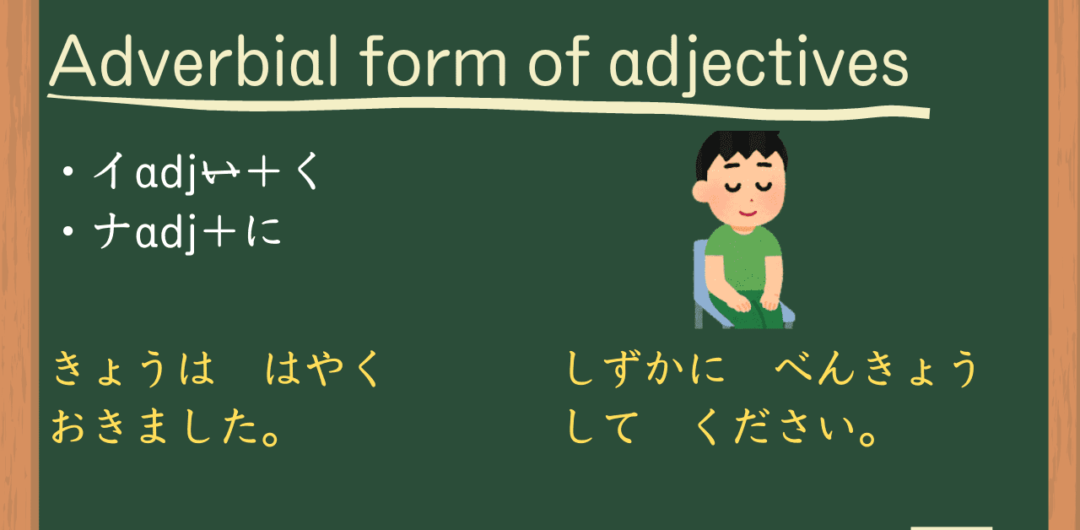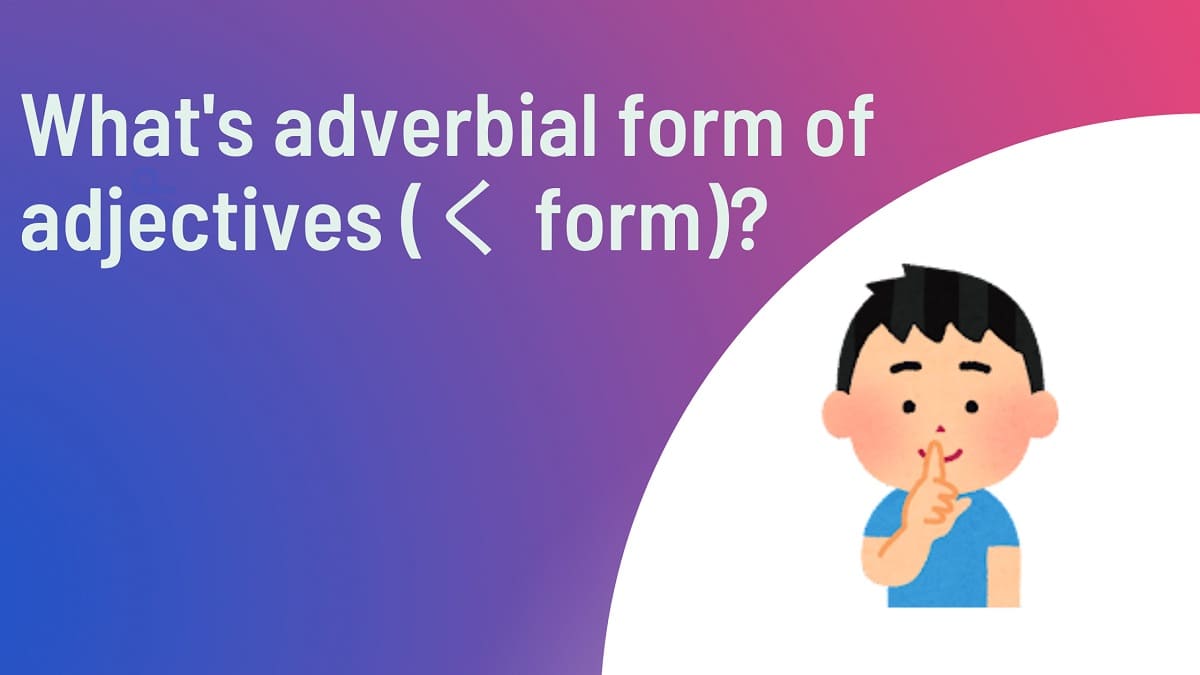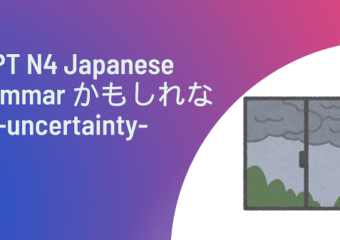In this article, I will teach you how to change from adjectives into adverbs.
As you know, adjectives describes nouns, but Japanese adjectives can modify verbs too.
The form of adjectives which can modify verbs is called 連用形 (れんようけい) , which is adverbial form.
When you read this article, you will understand what adverbial form is.
*Are you looking for a place to practice Japanese?
Youtonihongo is for you.
You may receive one free 30-minute trial lesson.

The free trial class online
We offer online classes and in person classes
Japanese adjectives and adverbs
If you don’t know what adjectives are, please read this article.
Learning Japanese grammar-adjectives conjugation
Before we discuss adverbial form, let’s learn what adjectives and adverbs are.
Adverbs are words that can modify words except nouns.
(ex) He runs fast.
Fast is an adverb.
In Japanese, they don’t have conjugation.
On the other hand, adjectives describes nouns.
(ex) Look at the tall man.
Tall is an adjective.
In Japanese, they can conjugate, so there is a form of adjectives that can modify action verbs.
Let’s take a closer look.
adverbial form of adjectives
イadj い+く
(れい) おおきい→おおき→おおきく
ナadj+に
(れい) たいせつな→たいせつに
Let’s see some examples.
Japanese:
きょうは あさ はやく おきました。
English:
I woke up early today.
はやく is originally はやい and it can modify a verb (おきました).
Japanese:
みえませんから、おおきく かいて ください。
English:
I can’t see, so please write bigger.
おおきく is an adverbial form of adjectives and it modifies a verb (かいてください).
Japanese:
しずかに べんきょうして ください。
English:
Please study quietly.
しずか is an adjective, but when we put に to しずか, it can modify a verb.
I’ll give you some examples of adverbial form.
| Adverbial form of イ adjectives | Adverbial form of ナ adjectives |
| おおきい→おおきくて | しずか→しずかに |
| あたらしい→あたらしく | きれい→きれいに |
| やすい→やすく | たいせつ→たいせつに |
conclusion

イadj い+く
(れい) おおきい→おおき→おおきく
ナadj+に
(れい) たいせつな→たいせつに
Excercise
1.かみを (ちいさいです→ ) きってください。
2.パソコンを (あたらしいです→ ) かいました。
3.かのじょに もらった プレゼントを (たいせつです→ ) つかいます。
4.(げんきです→ ) なりました。
5.これから (いそがしいです→ ) なります。
Answer
1.かみを (ちいさいです→ちいさく) きってください。
2.パソコンを (あたらしいです→あたらしく) かいました。
3.かのじょに もらった プレゼントを (たいせつです→たいせつに) つかいます。
4.(げんきです→げんきに) なりました。
5.これから (いそがしいです→いそがしく) なります。
If you would like to practice conjugation in conversation, please let me know.
I teach Japanese in person or online.
You will have chances to use Japanese in my class.
↓Please feel free to contact me.

The free trial class online
We offer online classes and in person classes



